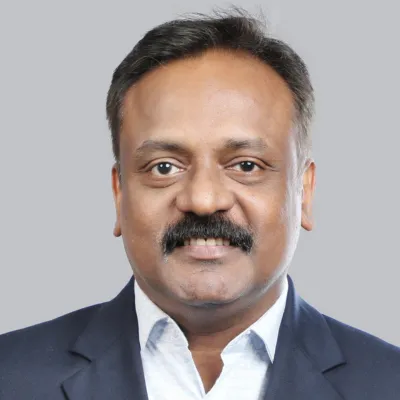Pancreatic surgery encompasses a range of surgical procedures performed on the pancreas, a gland located behind the stomach. The pancreas has two primary functions: producing digestive enzymes that aid in food digestion and releasing hormones like insulin and glucagon to regulate blood sugar levels. Surgical interventions on the pancreas are typically necessary when patients are diagnosed with pancreatic cancer, chronic pancreatitis, pancreatic cysts, or other conditions that affect the organ's structure or function.
The Two Most Common Types of Pancreatic Surgery are:
- Pancreaticoduodenectomy (Whipple Procedure): This procedure involves the removal of the head of the pancreas, the duodenum (the first part of the small intestine), the gallbladder, and a portion of the common bile duct and stomach. It is commonly used to treat pancreatic cancer located in the head of the pancreas, as well as other conditions involving the duodenum or bile ducts.
- Distal Pancreatectomy: In this surgery, the tail (left side) or body (center) of the pancreas is removed. It is often performed for tumors located in the tail or body of the pancreas, as well as certain cases of chronic pancreatitis.
Principles of Pancreatic Surgery
Pancreatic surgery is guided by several fundamental principles:
- Disease-Specific Approach: The choice of surgical procedure is determined by the patient's specific pancreatic condition. Surgeons carefully consider the location and nature of the disease.
- Minimization of Risks: Pancreatic surgery is a highly complex procedure with inherent risks. Surgeons aim to minimize these risks through meticulous planning, surgical skill, and post-operative care.
- Preservation of Function: When possible, surgeons aim to preserve as much of the pancreas's functional tissue as possible to maintain digestive and endocrine function.
- Multidisciplinary Care: Pancreatic surgery often involves a team of healthcare professionals, including surgeons, oncologists, gastroenterologists, and radiologists, who collaborate to provide comprehensive care.
Surgical Techniques
The surgical techniques employed in pancreatic surgery depend on the specific procedure being performed and the patient's condition. Here are the key steps involved in the two primary types of pancreatic surgery:
1. Pancreaticoduodenectomy (Whipple Procedure):
The Whipple procedure is a highly complex surgery that involves multiple steps:
- Incision: An incision is made in the abdomen, typically in the upper part.
- Disconnecting the Stomach and Duodenum: The surgeon disconnects the stomach and duodenum from the rest of the digestive tract.
- Removal of the Pancreatic Head: The head of the pancreas, which is often affected by cancer, is carefully removed.
- Reconnection of Digestive Tract: The digestive tract is then reconnected, typically through a procedure called a pancreatojejunostomy. This allows digestive enzymes from the remaining pancreas to flow into the small intestine.
- Reconnecting the Bile Duct: The common bile duct is reconnected to the small intestine to ensure the flow of bile.
- Reconstruction: The surgeon carefully reconstructs the digestive tract to ensure the proper flow of digestive juices.
2. Distal Pancreatectomy:
A distal pancreatectomy involves the removal of the tail or body of the pancreas:
- Incision: An abdominal incision is made, typically on the left side.
- Pancreas Dissection: The surgeon dissects and isolates the portion of the pancreas to be removed.
- Resection: The tail or body of the pancreas is carefully removed while preserving the pancreatic duct and blood vessels.
- Reconstruction: The remaining portion of the pancreas is usually reconstructed to ensure proper drainage of pancreatic juices.
Indications for Pancreatic Surgery
Pancreatic surgery is indicated in various medical scenarios, including:
- Pancreatic Cancer: Surgery is often the primary treatment for resectable pancreatic cancer (cancer that has not spread beyond the pancreas). It may be combined with other treatments like chemotherapy or radiation therapy.
- Chronic Pancreatitis: For individuals with chronic pancreatitis that does not respond to conservative treatment, surgery may be necessary to relieve pain or complications.
- Pancreatic Cysts: Some pancreatic cysts, particularly those with a risk of malignancy, may require surgical removal.
- Trauma: Severe injuries to the pancreas, often due to trauma or accidents, may necessitate surgical intervention.
- Pancreatic Neuroendocrine Tumors: Surgical removal of pancreatic neuroendocrine tumors (PNETs) is often recommended, particularly if the tumor is large or causing symptoms.
Benefits of Pancreatic Surgery
Pancreatic surgery offers several crucial benefits:
- Disease Control: Surgery can effectively remove cancerous or problematic pancreatic tissue, controlling or eliminating the disease.
- Symptom Relief: For individuals with chronic pancreatitis or benign pancreatic tumors, surgery can alleviate pain and discomfort.
- Enhanced Survival: In cases of resectable pancreatic cancer, surgery can extend survival rates, often in conjunction with other treatments.
- Improved Quality of Life: Symptom relief and disease control lead to an improved quality of life for many patients.
Challenges and Potential Risks
Pancreatic surgery is a highly complex and challenging procedure with potential risks and complications, including:
- Bleeding: Surgery on the pancreas can involve significant blood loss, requiring meticulous control of bleeding during the procedure.
- Infection: Post-operative infections are a concern, and patients are given antibiotics to prevent them.
- Pancreatic Leak: After surgery, a pancreatic leak can occur, leading to digestive enzyme leakage into the abdominal cavity. This can be managed with drainage and close monitoring.
- Diabetes: Surgery on the pancreas may result in diabetes or worsen pre-existing diabetes due to changes in insulin production.
- Complications: Various complications such as bile duct injury, infections, and gastrointestinal issues can arise post-surgery.
Advancements in Pancreatic Surgery
Advancements in surgical techniques and technology are continually improving the safety and effectiveness of pancreatic surgery:
- Minimally Invasive Surgery: Laparoscopic and robotic-assisted techniques are being used more frequently for pancreatic surgery, resulting in smaller incisions, reduced pain, and quicker recovery times.
- Enhanced Imaging: High-resolution imaging technologies, such as MRI and CT scans, help surgeons better plan and execute pancreatic surgery.
- Precision Medicine: Advancements in precision medicine and genetic testing allow for more tailored treatments and therapies for patients with pancreatic cancer.
- Improved Surgical Instruments: The development of specialized surgical instruments enhances the surgeon's precision during pancreatic surgery.
Outlook
Pancreatic surgery is a critical medical intervention for individuals with pancreatic diseases and conditions, including pancreatic cancer and chronic pancreatitis. While it presents significant challenges and potential risks, it also offers the potential for disease control, symptom relief, and improved quality of life for many patients. Ongoing advancements in surgical techniques, imaging, and personalized medicine continue to shape the landscape of pancreatic surgery, ultimately improving patient outcomes and providing hope for those facing pancreatic disorders. The complex and delicate nature of pancreatic surgery underscores the importance of a multidisciplinary approach and the expertise of highly skilled surgical teams.
 04 April,2025
Read More
04 April,2025
Read More
 04 April,2025
Read More
04 April,2025
Read More
 02 April,2025
Read More
02 April,2025
Read More
 27 March,2025
Read More
27 March,2025
Read More
 26 March,2025
Read More
26 March,2025
Read More
 22 March,2025
Read More
22 March,2025
Read More
 12 March,2025
Read More
12 March,2025
Read More




